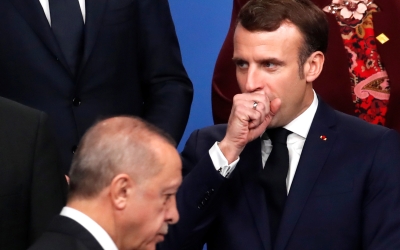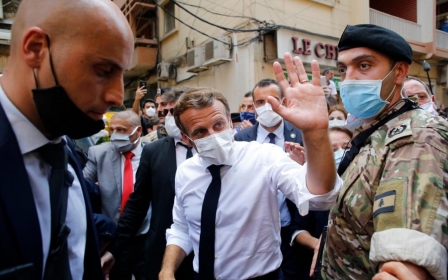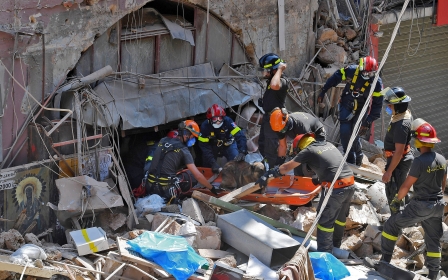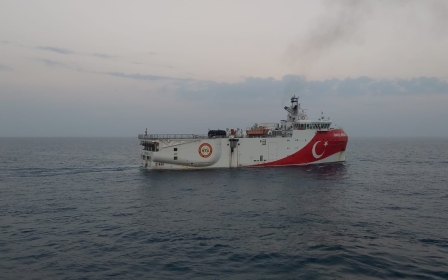Beirut explosion: Turkey ridicules Macron's Lebanon visit as colonialism
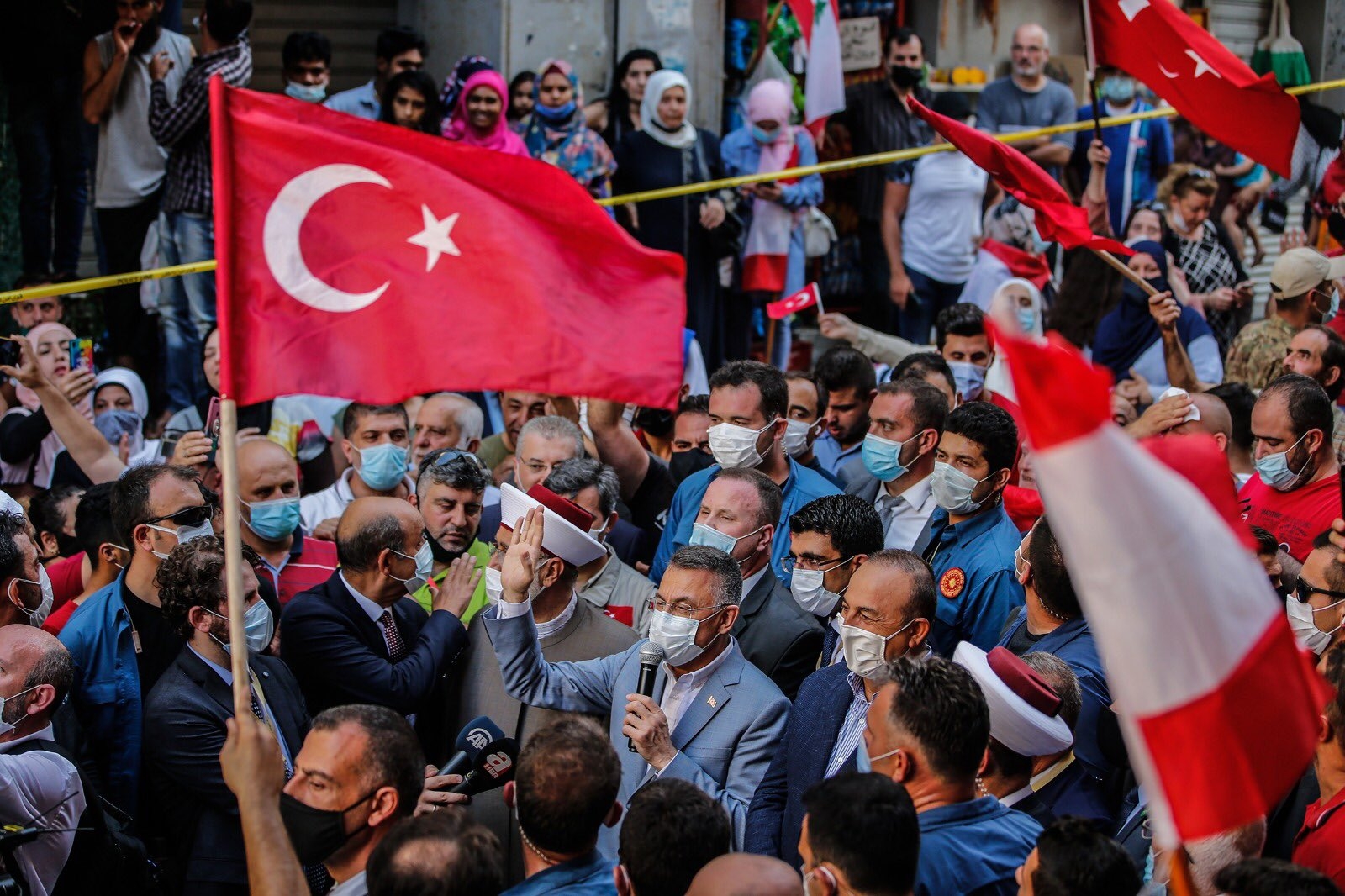
Senior Turkish officials have mocked French President Emmanuel Macron’s recent Beirut visit as a sign of colonialism and described him as “spoiled adolescent” who is trying to prove himself to the world, in remarks published on Tuesday.
Macron made a high-profile visit to the Lebanese capital on Thursday in the wake of a deadly blast in Beirut's port that has killed at least 160, injured some 5,000 and left the city devastated.
During that trip, when he was mobbed by crowds asking him for assistance, the French president accused regional countries such as Turkey of seeking to promote their interests in Lebanon at the expense of the country.
“If France doesn’t play its role, Iranians, Turks and Saudis will interfere with Lebanese domestic affairs, whose economic and geopolitical interests are likely to be to the detriment of the Lebanese," he reportedly said last week.
France carved Lebanon out of Syria in 1920 and ruled it from the end of the First Word War until 1943. Macron on Thursday promised to create a "new political pact" for Lebanon, and return to the country on 1 September to mark its centenary.
Turkish Vice President Fuat Oktay, who visited Lebanon over the weekend to show support with Lebanese, told newspaper Sabah that Ankara wouldn’t determine its policies according to Macron’s wishes.
“It is actually France that interferes with Lebanese domestic politics,” he said. “We shouldn’t take Macron too seriously. He is like a spoiled child in the region."
The vice president accused France of operating its foreign policy based on a colonial perspective, adding that Turkey instead operates in places such as Africa to provide humanitarian aid without any economic considerations.
“The main difference between the two countries is colonialism.” he said.
Speaking to the same newspaper, Turkish Foreign Minister Mevlut Cavusoglu said France considers the whole region as an arena of competition.
“[Macron's] remarks are reminiscent of France’s former colonial mentality. He says he will visit [Beirut] once again to inspect the expenditure,” Cavusoglu said. “[The French government], even one by one, tracks our firms in Africa. French newspapers report on Turkish firms in Algeria every 15 days.”
'It is actually France that interferes with Lebanese domestic politics. We shouldn’t take Macron too seriously. He is like a spoiled child in the region'
- Fuat Oktay, vice president
Cavusoglu said the French government was also pursuing other regional countries and asking them why they give contracts to Turkish firms. “They are asking, why are you with Turkey?’ he said.
Relations between Turkey and France have been fraught recently due to regional disagreements over Libya. The two Nato allies have been supporting the rival warring parties in the North African country as they clash with each other on a wide range of issues, including Ankara's role in the Turkish-French community.
Both Oktay and Cavusoglu visited a neighbourhood in Beirut which is populated by Lebanese citizens with Turkish or Turkmen origins. They were welcomed by hundreds carrying Turkish flags, mirroring the crowds accompanied Macron.
Oktay said Turkey was ready to help reconstruct Beirut port, and Turkish ports were at Lebanese disposal.
This article is available in French on Middle East Eye French edition.
Middle East Eye propose une couverture et une analyse indépendantes et incomparables du Moyen-Orient, de l’Afrique du Nord et d’autres régions du monde. Pour en savoir plus sur la reprise de ce contenu et les frais qui s’appliquent, veuillez remplir ce formulaire [en anglais]. Pour en savoir plus sur MEE, cliquez ici [en anglais].


